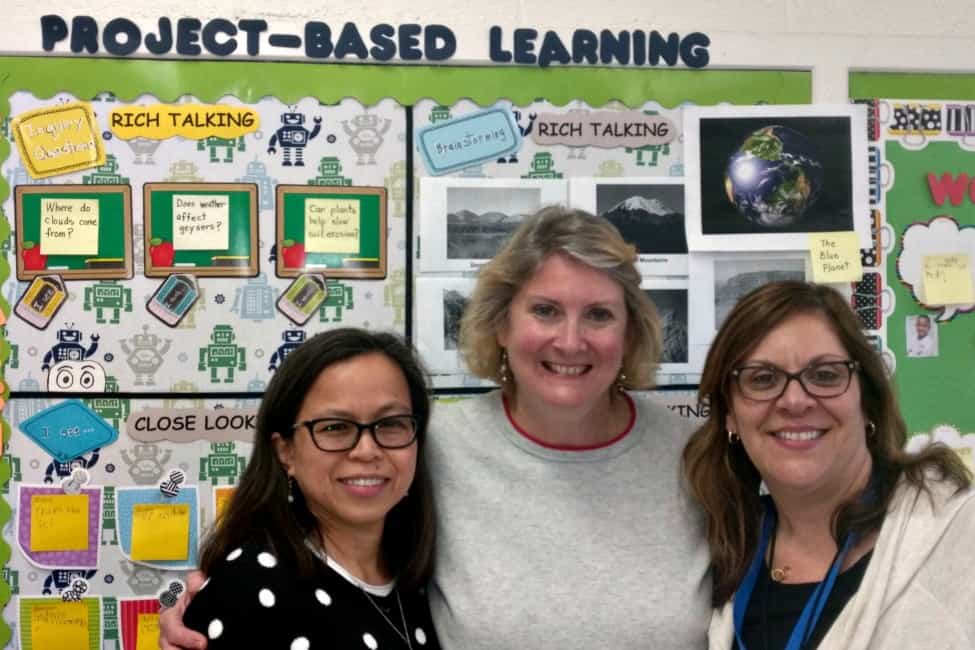Project Based Learning at Grace
Grace recently sent a contingent of teachers and administrators to the Educators Institute at the Duke School in Durham, NC. Kindergarten teacher Rose Morrison, Grade 1 teacher Belkis Aponte, and Director of Early Childhood Education Pam Yarrington had the chance to meet with practitioners, observe teachers and students, and learn more about Project-Based Learning (PBL), a classroom approach that allows students to explore real-life problems and apply creativity, communication, and critical thinking skills to learning more and finding solutions. Project-based learning often results in greater student agency and engagement.
Projects are in-depth investigations that challenge students to apply skills, knowledge, and strategies from different content areas as they do authentic research, analyze data, think deeply about problems and draw conclusions. As projects evolve, students build on their unique interests and talents and become experts in a particular area of the project topic. Through project work students not only learn new concepts and content, they develop the competencies essential for future learning: the ability to formulate essential questions, conduct research both independently and collaboratively, evaluate and synthesize results, present those results to others, and reflect on the strengths of their work and the ways they can improve. (https://www.dukeschool.org/page/learn/project-work)
The dedicated Grace team drove down to Durham in March during the weekend of the epic windstorm and spent two days on the Duke School campus (with two sessions in the dark due to power outages!). They attended seminars, observed students in classes, and had a chance to talk with the Innovation and Curriculum Directors at the Duke School. Our Grace faculty left with a renewed excitement about project work and some practical tips for how to enliven their own teaching.
For Mrs. Aponte, who has been a practitioner of PBL for many years, the seminar was “reassuring”: she saw things that she is already doing in her classroom, and she loved seeing children who have strong ownership of their learning. She also gathered some new ideas for scheduling PBL times in her students’ day, and realized that she needs more bulletin boards to document student work!
Mrs. Morrison said that the conference is what she had been waiting for: it offered the full picture of PBL in the classroom and also a road map for how to proceed in her own classroom. Following the project approach means “losing nothing and gaining a lot.” She has several new ideas, including how to schedule field trips not as culminating activities to a unit, but throughout the learning.
As an administrator, Mrs. Yarrington really appreciated being able to see the full curriculum in action from Preschool-Grade 4. She also heard more about the way that PBL learning allows teachers to amplify learning and engagement while meeting recognized standards of learning. She particularly appreciates the way that the project approach documents student work and helps them recognize that they are experts in a certain field.
Next fall, we hope to send another group of educators from Grace along with our Director of Elementary Education Gail Kennedy.
Want to learn more about the Project approach and this teachers’ institute?https://www.dukeschool.org/page/explore/the-educators-institute-at-duke-school
